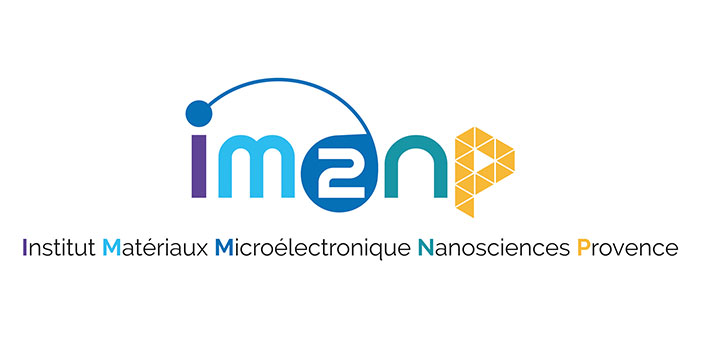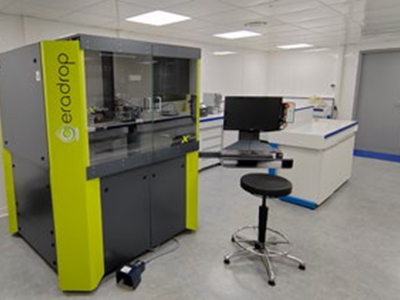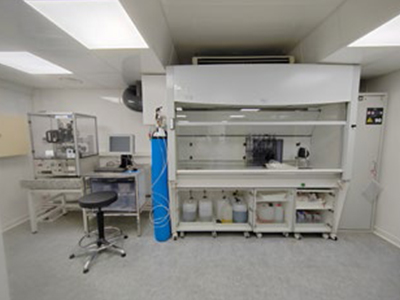
IM2NP
With more than 250 employees, the Institute brings together the skills needed for research in materials science, microelectronics and nanoscience. The coexistence of a wide range of expertise within the same institute means that issues relating to the development of printed electronics on flexible substrates can be addressed at different levels of study, and the SPRINT technology platform completes the range of fabrication, design and characterisation resources available at IM2NP. Five of the Institute’s teams support the SPRINT platform for the development of objects on all types of media (Kapton®, PET, PEN, paper, glass, silicon, etc.). In-house collaborations with the IOLab (Intelligent Object Lab) platform and the heterogeneous integration cross-disciplinary action enable the entire value chain to be addressed, from the design to the characterisation of electronic components and systems, whatever the manufacturing technology used: printing techniques, conventional microelectronics technologies or hybridisation.
Memories team
It addresses a wide range of memory devices (isolated or matrixed), from materials to the design of test vehicles and software, via modelling, simulation, characterisation and reliability analysis of cells with innovative architectures. More recently, the team has been working on the development of individual resistive memory cells (CBRAM) and arrays printed on flexible substrates.
RFID-Communicating communicatings
It aims to innovate and propose new avenues of development for RFID, in particular by proposing solutions based on printed electronics or the assembly of mixed systems on flexible substrates. Its skills range from the design/modelling of these systems to the development and characterisation of prototypes. One of its distinctive features is its ability to design RFID antennas tailored to the application in question, including in harsh environments and using innovative materials and manufacturing processes.
Microsensors team
Its work aims to improve the performance of micro- sensors and multi-sensors by using materials with remarkable properties or by processing the signal using artificial intelligence. The main activity focuses on the detection of gases, vapours or VOCs (volatile organic compounds). These sensors meet the needs of industry in terms of cost, sensitivity, selectivity and reliability; the team also has the skills and tools to design the heating elements associated with these sensors. In recent years, the team has diversified its activities (temperature and force sensors, etc.) and acquired the skills needed to design and manufacture sensors printed on flexible substrates, particularly for biomedical applications..
IRM-PV team
(Interaction Rayonnements Matière - PhotoVoltaïque). IRM-PV works on PV conversion and the detection of radiation and/or particles in harsh environments. It possesses and develops a range of specific characterisation tools enabling it to carry out studies ranging from materials to components. The main areas of expertise covered are radiation-matter interaction, PV, opto-electrical characterisation, optical thin films, and neutron and UV detection in harsh environments. These areas of expertise draw on skills linked to the SPRINT platform, in particular the study of ageing.
LUMEN-PV team
(ILight Ultimate MatErials Nanodevices and PV). The team’s activities are centred on a global materials/ optics/electrics approach to devices (PV or detectors). In this respect, the team’s specific strength is the coupling between optoelectronic techniques for characterising materials and proprietary software for optimising solar cells and detectors. The research themes concern new-generation PV (inorganic/organic thin films and new concepts, indoor PV), optoelectronics (metamaterials) and LiFi. Most of these activities are currently carried out in collaboration with CINaM’s FUN team.
UMR 7334 CNRS - Universités
d’Aix-Marseille et du Sud Toulon-Var
Contact
Directeur
Rachid BOUCHAKOUR
Contact plate-forme SPRINT
Evangéline BENEVENT
evangeline.benevent@im2np.fr
Mob. : +33(0)6 60 33 63 66
Site internet
https://www.im2np.fr/


